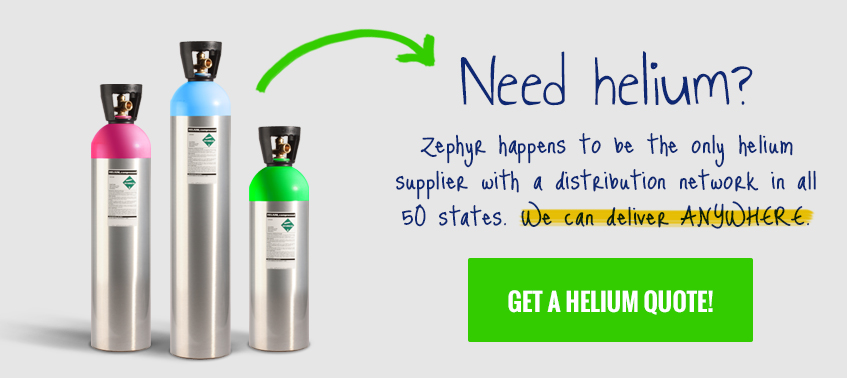Inside the hard disk drive (HDD) in your computer is what resembles a short stack of small DVDs. Called platters, these oscillating, magnetic disks are where data is recorded and transferred, and are the reason why you can turn off your computer without losing your files.
So, what does helium have to it?
Helium is seven times less dense than air, which means that if an object is moving through a sealed helium environment instead of an open air environment, it would move far more quickly and effortlessly due to dramatically less drag resistance acting upon it.
In basic terms, the faster and cooler that the platters inside the hard drive can spin, the better the performance.
The concept is nothing new, but the cons have always included the higher cost and limited availability of helium. The biggest challenge however, was figuring out how to seal off the drive to prevent the infamously leaky helium gas molecules from escaping.
In 2012, after more than six years of painstaking development, Hitachi Global Storage Technologies (HGST) announced the first helium-filled, factory-sealed HDD for enterprise and cloud customers. The company demonstrated a side-by-side comparison of the new helium-filled drive with an equivalent, air-filled drive, and were able to show a power consumption reduction of 23 percent with the helium HDD.
Addressing the concerns over the availability of a finite resource like helium, HGST explained that a single, standard helium tank provides enough helium gas to produce 10,000 hard drives. They added that the mass manufacturing of helium-filled hard drives would account for less than 1% of all of the commercial helium consumption in the world.
Helium hard drives have proven the following benefits over their traditional, air-filled counterparts:
• 23% lower operating power
• 50% higher storage capacity
• 49% reduction in watts per terabyte
• 7°F cooler operating temperature
• 5 grams lighter overall weight
• Lower total cost of ownership
• Lower cost per gigabyte
• Quieter running noise
This year, HGST confirmed that they will no longer produce traditional air-filled hard drives come 2018, opting solely for the lighter, faster, and cooler helium alternative.
What are the benefits for us? Helium means faster, more reliable streaming for a growing number of consumers, cheaper cloud storage, and more efficient, cost-effective computing, just to name a few.
Sources: Hitachi Global Storage Technologies, The Register, Storage Servers



